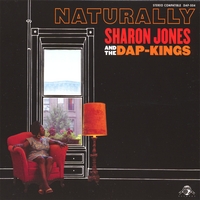 Jesse Helms died this weekend, and my initial reaction was something short of decorous. It's bad manners to speak ill of the dead, particularly when their bodies haven't even cooled yet, and it is indeed a noble thing to forgive; but I was feeling pretty anti-noble and pretty brazen in notes I sent out to some friends, virtually dancing on the former senator's grave, unapologetically.
Jesse Helms died this weekend, and my initial reaction was something short of decorous. It's bad manners to speak ill of the dead, particularly when their bodies haven't even cooled yet, and it is indeed a noble thing to forgive; but I was feeling pretty anti-noble and pretty brazen in notes I sent out to some friends, virtually dancing on the former senator's grave, unapologetically.It would be fair for the reader to ask if this was not a terrible thing to do. Doesn't the Buddhist ethos demand compassion, urge a response that mutes suffering rather than amplifies it? Has Pop Argot actually done unto others as he would have done unto him?
I'm not that faithful a Buddhist. And I don't feel bad about my harsh words, for one simple reason: To the best of my knowledge, I have never deprived another person of his right to life, liberty, property, or the pursuit of happiness. Senator Helms, on the other hand, devoted his entire professional career to the precise mission of depriving large segments of America those very rights. The anti-civil-rights, anti-voting-rights, anti-gay-rights, anti-art, anti-liberalism, anti-progressivism, anti-minority, segregationist senator did everything he could to prevent the empowerment of those classes of people who were not like him. His America was only for white Christian conservatives.
That's where Sharon Jones and the Dap-Kings come in. Last week, when compiling a set of songs applicable to Independence Day, it was precisely the outmoded and wrongheaded thinking of Helms and his white-hooded cronies that inspired me to include Curtis Mayfield and the Impressions' "This Is My Country" (a sweetly voiced reminder that African Americans, having put in 300 years or more of sweat equity into the U.S., have more than partial vested interest in it) and Sharon Jones and the Dap-Kings' firmly funked take on the Woody Guthrie-penned "This Land Is Your Land". Guthrie, whom Helms surely would have set aflame like a cigarette had he the chance, had a vision of America that was more broadly encompassing than most. His inclusiveness is best illustrated in the stanza of "This Land Is Your Land" that we never sang in elementary school or on campgrounds growing up. As rendered by Ms. Jones and company:
As I was walking, now they tried to stop me;If you think that's just a glib share-the-land sentiment like in "Signs," you're not really getting the point. Those "private property" signs represent the barriers faced by any minority population; they're the signs that have appeared on country clubs, on restrooms, in churches, in classrooms throughout America's mixed and complicated history. "This Land Is Your Land" was, and is, a call for those exclusionary signs to come down, to let America be America to all.
They put up a sign that said - ah, it said "private property."
Well, on the back side, you know it said nothing;
So it must be that side was made for you and me.
Jesse Helms did not want to share his America. Not with blacks, not with other racial minorities, not with women, not with gays, not with liberals, not with the poor, not with those afflicted with AIDS, not with anyone who contemplated monetary redistribution for the larger good; indeed, not with anyone who contemplated, full stop.
Mr. Helms, you were wrong. America is larger and broader and more complex than you knew; the world is larger and broader and more complex than you knew. This world has no room for your worldview of the Divine Right of White. This land is your land - but it is our land too, and may some of those who have been poisoned by your logic over the years come to understand this. From the redwood forests to the Gulf Stream waters, this land was made for you - and me.

1 comment:
When our band performs this song at Laguna Honda Hospital, I insist on using that extra verse, which I call the 'socialist verse!'
Post a Comment